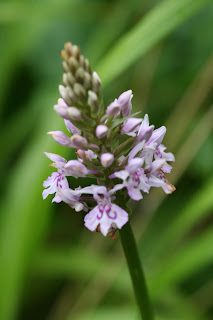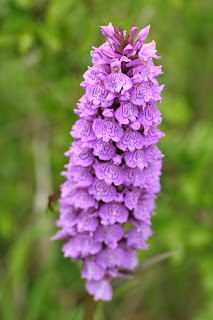Help us recover from the worst storm in 60 years
)
Although events like the weekend storm surge along East Anglia's coastline are to be expected, I hadn't fully braced myself for the aftermath.
As the full impacts of the storm hit us on Thursday night, it quickly became apparent that this was going to be devastating. Homes, businesses, landmarks and habitats were suddenly going to be hit by a wall of water. I went to bed on Thursday night feeling helpless and sick with worry about our precious coastline.
I'm e-mailing you today to ask for your help.
We're setting up an emergency fund that we can use to get our nature reserves back into shape and repair the damage caused by the worst storm in 60 years. A
donation from you, whatever you can afford, will go a long way to help us restore these precious homes for nature.
A devastated landscape
All along the East coast, we have battled with the elements for centuries. And our team are well drilled in dealing with this kind emergency - sluice gates are lifted to prevent seawater getting into the freshwater habitats, livestock is moved to higher ground, and footpaths are closed. The safety of our visitors and staff are our paramount concern. This drill was being tested to the max.
As it all unfolded, there was a strange mixture of emotions.
Sadly, the most extensive damage was at our Snettisham, Havergate and Dingle nature reserves and it was with a heavy heart that I drove along the Beach Road to see my colleagues at Snettisham.
As a Regional Director I know that I am not supposed to have favourite reserves, but Snettisham holds a special place in my heart. My grandparents had a caravan in a park adjoining the reserve and this is where I began birdwatching. The access track was impassable and the shingle bank where thousands of wading birds roost safe from disturbance had been breached. Some of the chalet owners who live and holiday next to the beach were clearing up with shovels rather than brooms. It was extremely heart wrenching to see.
The shingle beach had been completely stripped away. In the summer it is a riot of yellows, pinks and blues but this time the seaweed was strewn up where the shingle beach used to be and silt mud covered the path. There was a profusion of plastic barrels, bottles and rope.
Snettisham is normally two gravel pits separated by a causeway footbath. Having been topped up with millions of gallons of seawater it was now one massive lake.
The first hide was still in tact. Looking from the window I could see that another hide had been rolled 180 degrees and was now tilted at a 45 degree angle - any view from the hide slots would now just be of the sky. One hide had completely disappeared!
I went into Shore Hide. The hide door had a strand line that came up to the door handle. Inside the hide was strewn with seaweed and the sheer force of the water had shattered one of the windows and punched a massive hole through the front of the hide.
The pits at Snettisham are important in the summer for breeding birds such as black-headed gulls, which nest on a number of islands. It will be important to get rid of the water in readiness for their return. It is at this time of year when the pits at Snettisham come alive. When the tide covers the mudflat of The Wash tens of thousands of waders come into the pits to roost – one of the most remarkable sights in nature. They stand in a massive huddle on the concrete and shingle banks of the gravel pits. These banks have now been eroded by the force of the tide.
On arriving at Snettisham I saw a flock of knot fly from over the pits and out to The Wash. Knot roost in large numbers at Snettisham. I wonder where they roosted last night? Like their namesake, King Canute, the knot weren't able to turn back the power of the tide.
Water rushed over the river wall at RSPB Blacktoft Sands causing damage to our reception centre. The Marshland sluice needs repairing, and no-one has manged to get out to Reeds Island yet. We can only assume the lagoons have been completely destroyed.
At RSPB Saltholme the banks that protect the reedbeds from the damaging effects of saltwater have been weakened. And the footpath and boardwalk to the seal viewpoint is still under a lot of water, so we don't even know the extent of the damage there yet.
RSPB Titchwell suffered at the hands of the tide, but had it not been for the Coastal Change project a few years ago the site would have been completely devastated. As I walked along the westbank path to witness the effects for myself, it was clear the site's infrastructure had taken the full force.
The sea wall was covered with weeds and plastic canisters dragged up from the sea. Benches were strewn with debris and the iconic boardwalk was in tatters. This was just the beginning.
Beyond the seawall our boardwalk onto the beach had fared less well - it was twisted and contorted. I had been at Titchwell the week before and had wandered along the beach next to the 30 foot sand dunes. These had been completely flattened by the surge.
Help us repair the damage
The devastation to some of our nature reserves has been immense, and as I write this we're still not sure of the full impact. But it will take a lot of hard work and resources to put it right and restore these homes for nature. Insurance covers some of the costs of the damaged hides, but not the cost of repairing habitats.
We are still assessing the damage, but estimate that the cost of repairs could be over £300,000. That is why we're setting up an emergency fund that we can use to get our nature reserves back into shape and repair the damage caused.
Please help us rebuild from the worst storm in 60 years.
Thank you.
Paul Forecast Regional Director, Eastern England

.jpg)

)

































